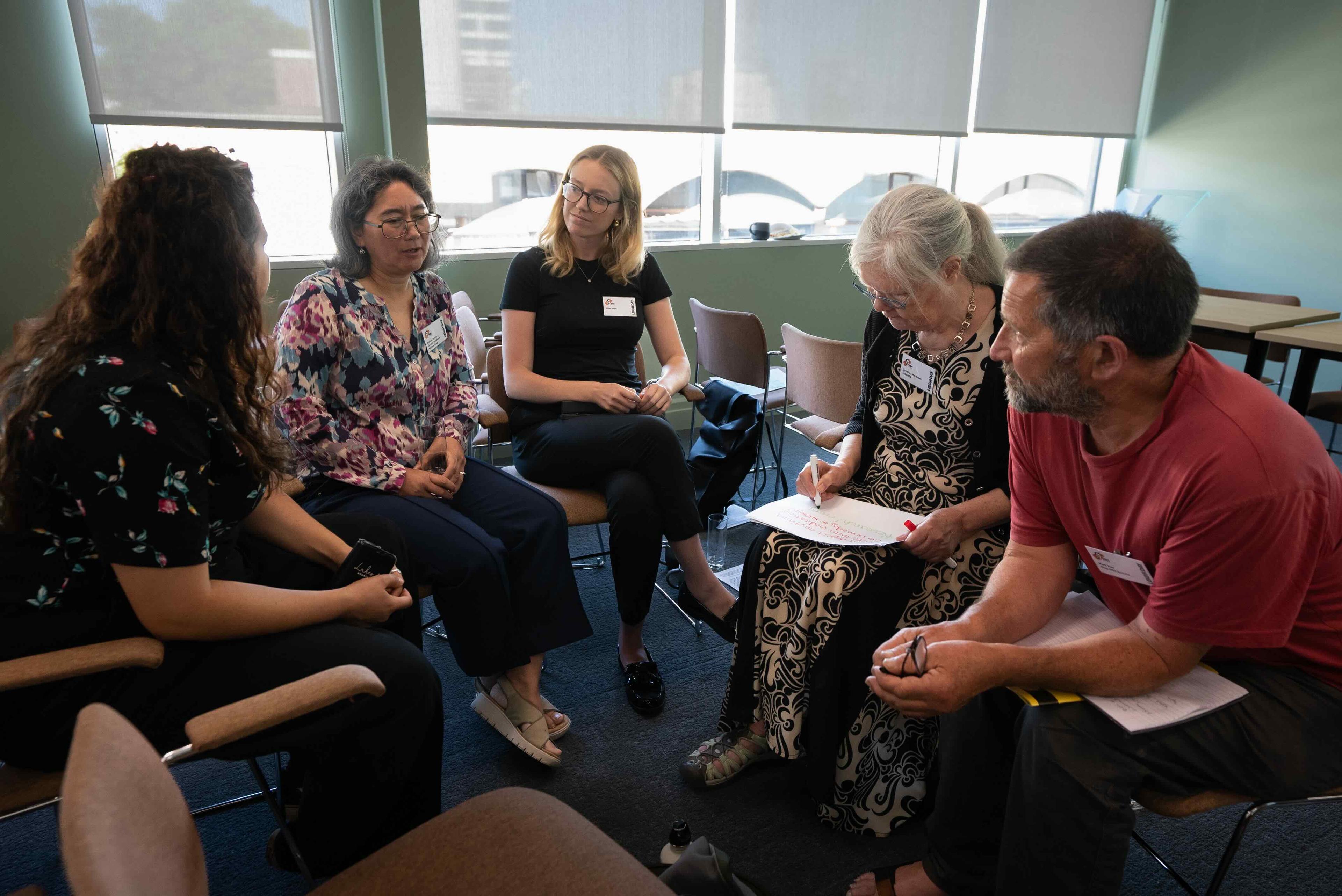Public Inquiries: A route to justice for communities?

Our one-day conference Public Inquiries: A route to justice for communities? brought together campaigners, legal experts, and affected families to examine the effectiveness, and limits, of public inquiries as tools for justice and accountability.
As part of our research into police violence, surveillance, discrimination and judicial harassment on the frontline of environmental protest, we have heard many calls from activists for accountability. Public inquiries have been sold as a silver bullet, leading some defenders who have been wronged to propose that they also need an inquiry.
Our conference intended to distil knowledge and help the campaigns decide whether a public inquiry was right for them. With a strong focus on police violence, state failings, and community-led justice, the event explored structural barriers, proposed reforms, and grassroots alternatives to traditional legal processes.
Resources
To help grassroots organisations decide if they would like to initiate their own public inquiry we developed this Zine with anti racism writer Jose Hall. You can view and download the zine here.
Programme Summary
Introduction & Welcome
Speaker: Justine, Director, Not1More
The conference opened by grounding the day in solidarity, reflection, and the pursuit of justice. Environmental activist Deborah Hodson made a moving speech about why state accountability is important, when sticking up for her family and the planet made herself and her partner extremely vulnerable to discrimination and harassment at the hands of the police.
Public Inquiries: Where Are We Now?
Speaker: Sonali Naik KC, Garden Court Chambers
Public inquiries offer a vital but flawed path to truth and justice, constrained by legal design and political discretion.
Inquiries into Police Misconduct: Failures, Obstacles and Achievements
Chair: Paul Clark, Garden Court Chambers
Speakers: Donal O’Driscol, Undercover Research Group; Suresh Grover, Newham Monitoring Group; Owen Greenhall, Garden Court Chambers
The panel, including Donal O’Driscol, Suresh Grover, and Owen Greenhall, revealed how inquiries tend to prioritise legal procedure over meaningful outcomes, often exclude affected families from genuine participation, and implement less than 5% of recommendations—raising urgent questions about their purpose, structure and independence.
Improving National Redress Mechanisms
Chair: Emma Jones, Leigh Day
Speakers: Elkan Abrahamson, Broudie Jackson Canter North; Lee Marsons, Public Law Project; Rosanna Ellul, INQUEST
Our speakers argued that meaningful reform requires stronger oversight, cultural change in public institutions, and better support for families.
Breakout Group What is a public inquiry and who is it for?
Facilitator: Jennifer Thwaite, Garden Court Chambers
This was a small breakout session aimed at campaigners who are new to public inquiries, and wanted to learn more.
Beyond Inquiries: Diverse Routes to Justice
Chair: Jacqueline McKenzie, Leigh Day
Speakers: Antonia Bunnin, Gatwick Detainee Welfare Group & Refugee Tales; Ridy Wasolua, Filmmaker & Refugee Tales contributor; Ken Fero, Migrant Media; Kura Jagne, People’s Tribunal on Police Killings; Sarah Kadri, LUNG & The Children’s Inquiry.
When public inquiries fail, communities create their own paths to justice through art, storytelling and grassroots action.
The Duty of the State: Where Next for Hillsborough Law?
Chair: Clara Collingwood, Covid-19 Bereaved Families for Justice UK
Speakers: Nathan Oswin, Hillsborough Law Now; Naomi Fulop, Covid-19 Bereaved Families for Justice UK; Marie Lyons, Association for Children Damaged by Hormone Pregnancy Tests; Mark Ward, Infected Blood Campaign
Campaigners across tragedies unite to demand the Hillsborough Law and a statutory duty of truth and accountability from public bodies.
Facilitated Session
Facilitator: Justine Taylor
In this session attendees and speakers all worked in groups to share their learnings from their own work and the panels throughout the day to crystalise their learnings into what wisdom they would choose to share with a wider community. These learnings from all the diverse voices have become the backbone of our zine.
Closing Remarks
Speakers: Emma Jones, Leigh Day; Fran Lambrick Director & Co-Founder, Not1More
True accountability demands not only legal reform but also relentless campaigning, collective care, and creative resistance.
This event was organised by Not1More in collaboration with Leigh Day, June 2025.